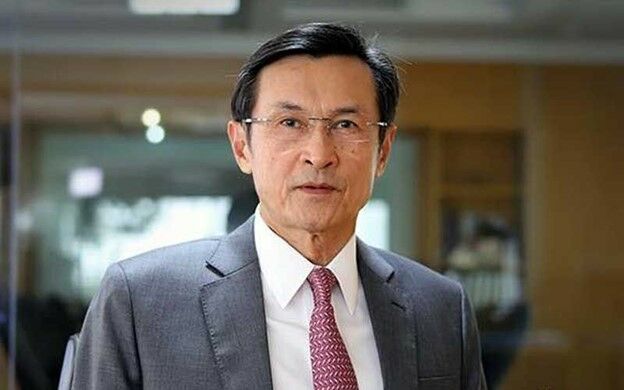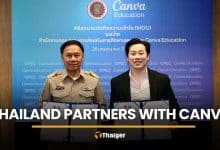Education rights for Burmese students advocated by former Thai minister

A case involving former Thai education minister Chaturon Chaisang has recently shone a light on the plight of 126 Burmese students caught in a legal conundrum. The students, undocumented and without Thai nationality, were accepted into the school by Kanlaya Thasom, also known as Teacher Poo, the former head of Thairath Wittaya 6 School in Ang Thong province. This issue attracted the attention of authorities and resulted in a legal case against the educator, prompting greater education rights.
Around 3pm yesterday at Pa Mok Police Station in Ang Thong, Chaturon along with the team Assoc. International Law and Human Rights and the Mirror Foundation met Pol. Lt. Col. Sakchai Krai Weeradechachai, superintendent of Pa Mok Police Station, and Deputy Investigator Pol. Lt. Col. Surasit Jaitiang. They vouched as witnesses for Teacher Poo in relation to the acceptance of 126 children, identified as Burmese students without required registration documents.
The children were accused of entering the Thai kingdom illegally and being housed before being returned to their homeland, causing them to be charged according to the Alien Act of 1979. The former education minister revealed that sending the children back without providing educational opportunities would have deprived them of their right to education.
He emphasizes that the policy should be relaxed, allowing these children to pursue their education. Amidst the opening of the school term, the national security forces should consider their course of action meticulously. If a repatriation policy is applied, it should be noted whether these children will have access to education or not.
He further stated that various state officials involved should understand the background as there is a Cabinet resolution granting the right to education for children without Thai nationality. Thus, the actions of the school head and team can’t be considered as breaking the law as they were following a Cabinet resolution dated 2005, allowing educational opportunities for children unable to confirm nationality, reported KhaoSod.
Accordingly, the actions were approved by the National Security Council and were part of the strategy for managing the status and rights of individuals. As a result, this led to his visit and role as a witness in this case.
Latest Thailand News
Follow The Thaiger on Google News:


























